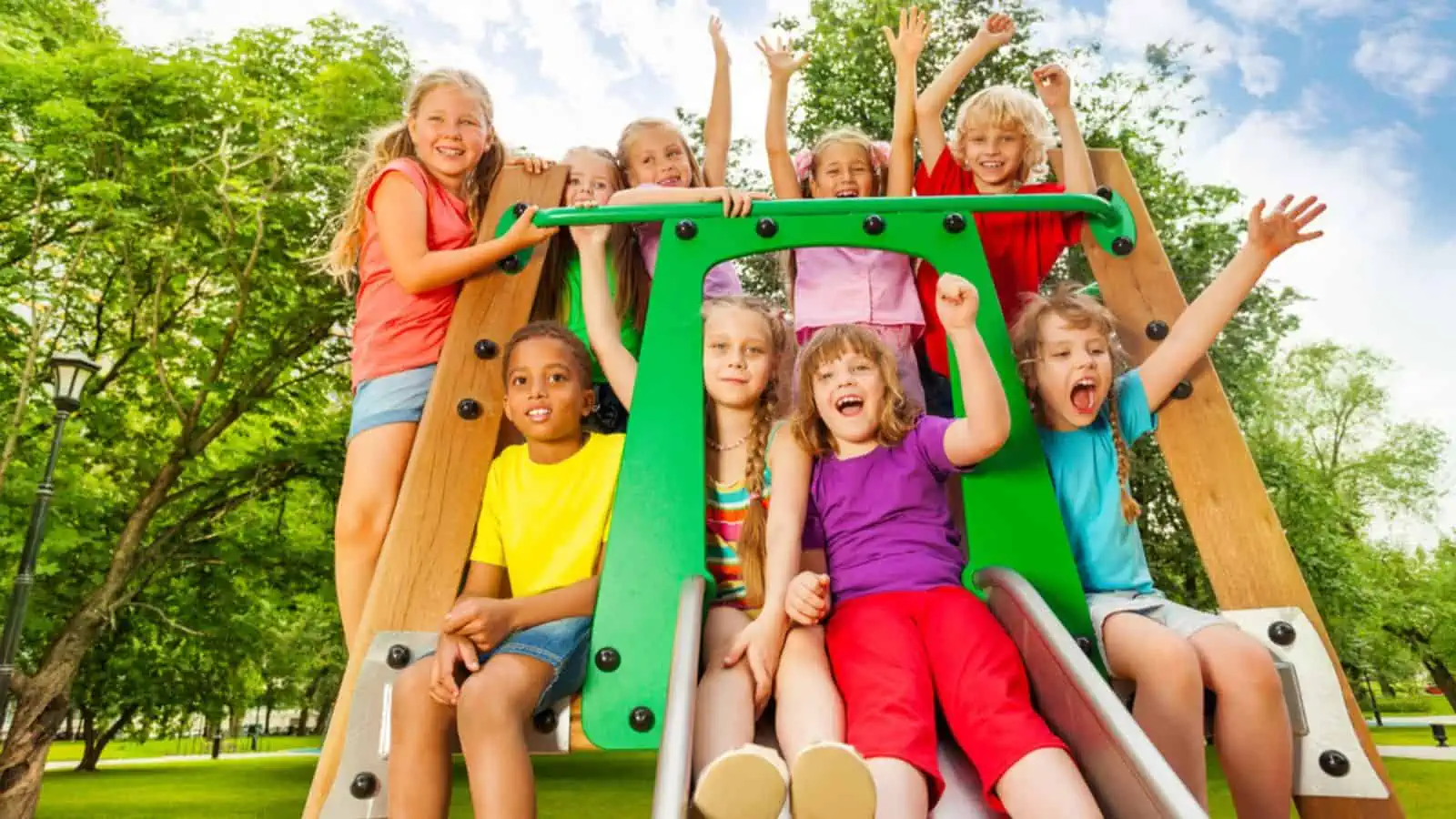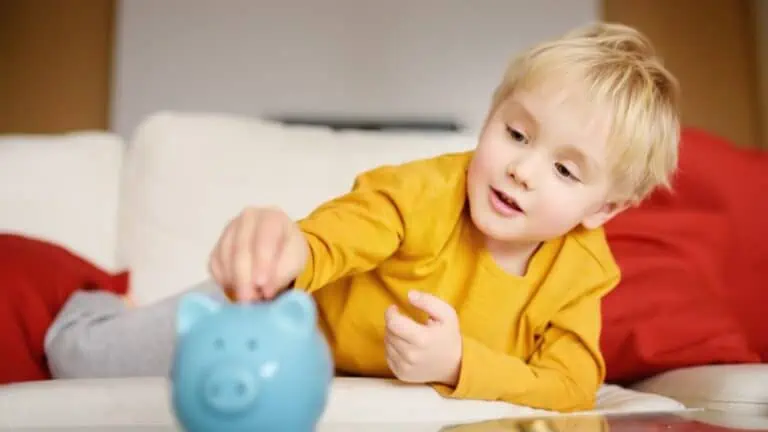15 Things Younger Generations Deserve to Preserve Their Childhoods
This post may contain affiliate links. As an Amazon Associate, I earn from qualifying purchases.
As time goes on and technology advances quicker than ever, it’s becoming increasingly clear that our younger generations are growing up in a vastly different world than previous ones. With the rise of technology, social media, and an ever-increasing focus on productivity and success, childhood innocence seems to be slowly slipping away.
While not everyone grew up in a happy home, childhood in past decades was generally a state of getting lost in adventures and carefree fun. It was a time when children could play freely without the constant pressure of academics and extracurricular activities. But with the current societal expectations placed upon them, our young ones are being robbed of their precious innocent years.
So what can we do to preserve and nurture their childhood innocence? Here are 15 things that our younger generations need more of now more than ever.
1. More Privacy

Whether kids should be on social media is always a hot topic, especially for little kids who don’t have consent (babies and toddlers). Why should young children have to share their private moments on any social media platform? And what messages are we sending them when we don’t allow them to opt-out?
Children deserve privacy, especially in a world where everything is shared and documented. They don’t need to be constantly filmed or photographed and have their emotional or embarassing moments shared with the world. We need to give them the space to be kids and enjoy life without the pressure of being constantly observed.
2. More Attention, Less Photo Taking
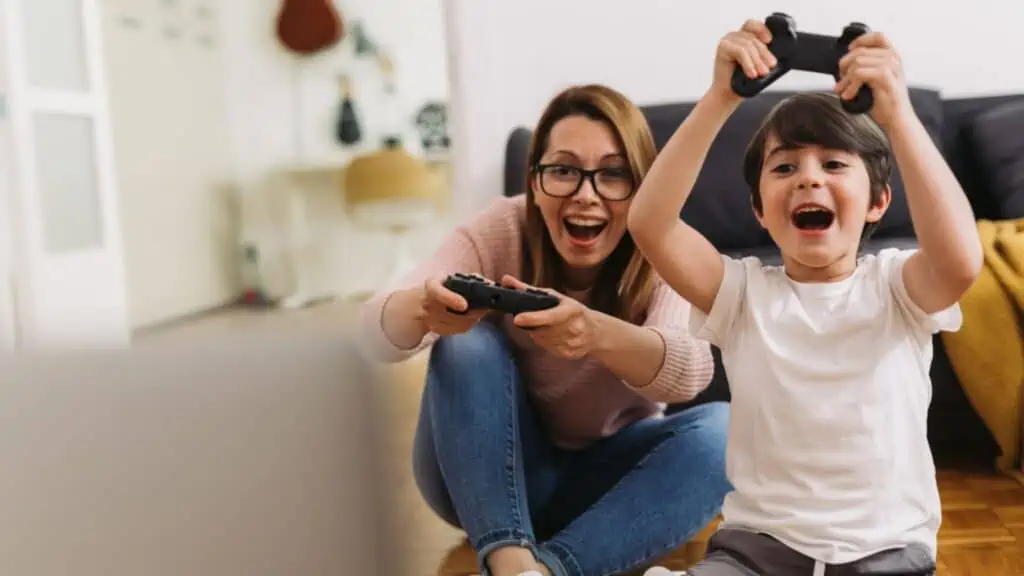
Speaking of social media, many folks mentioned that many adults are concerned with “Instagram” worthy photos rather than giving at the moment with their kids. This goes for happy, dramatic, and sad moments.
Adults are often taken aback when some parents film their kids having a breakdown, sustaining an injury, or in any other vulnerable moment. The child needs a hug or a listening ear, not a camera in their face.
3. Less Globalization
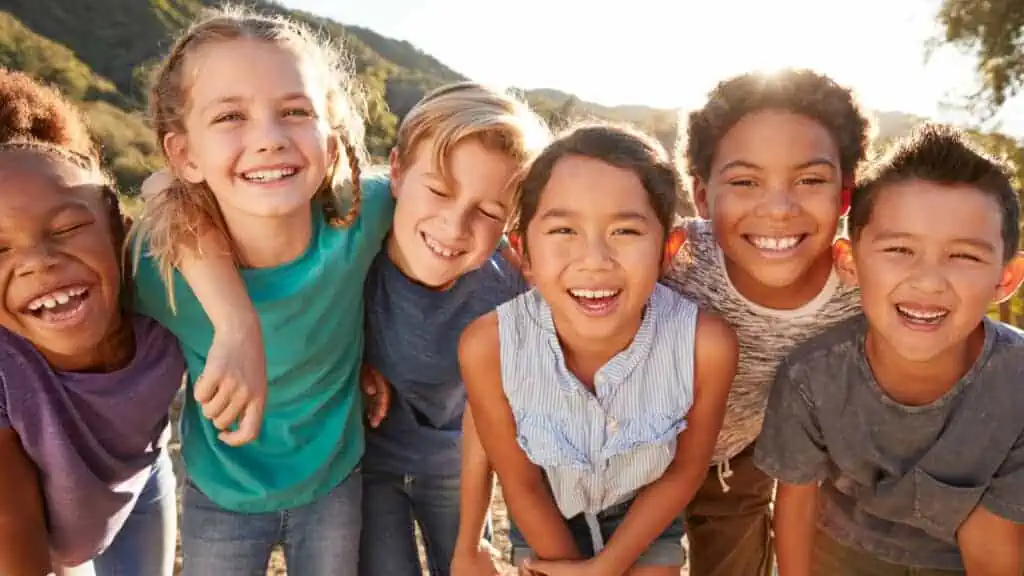
It’s normal for kids to want to fit in with their peers. But what happens when they have access to kids across the world? These shallow connections can’t compare to building relationships with those at school, in the neighborhood, etc.
It’s important for kids to have a sense of community and belonging in their own physical world, and worry less about fitting in with the entire world through social media.
4. Being Held Accountable by All Adults

These days, parents (and other adults) must tread carefully when scolding or reprimanding other people’s kids. Somehow, it’s become a norm that only parents can discipline their own kids- which is ridiculous since they aren’t always around.
It’s vital for all adults to tactfully (and respectfully) hold kids accountable and teach them right from wrong. Not doing so only teaches them that they can get away with anything.
5. Space to Just Be Kids
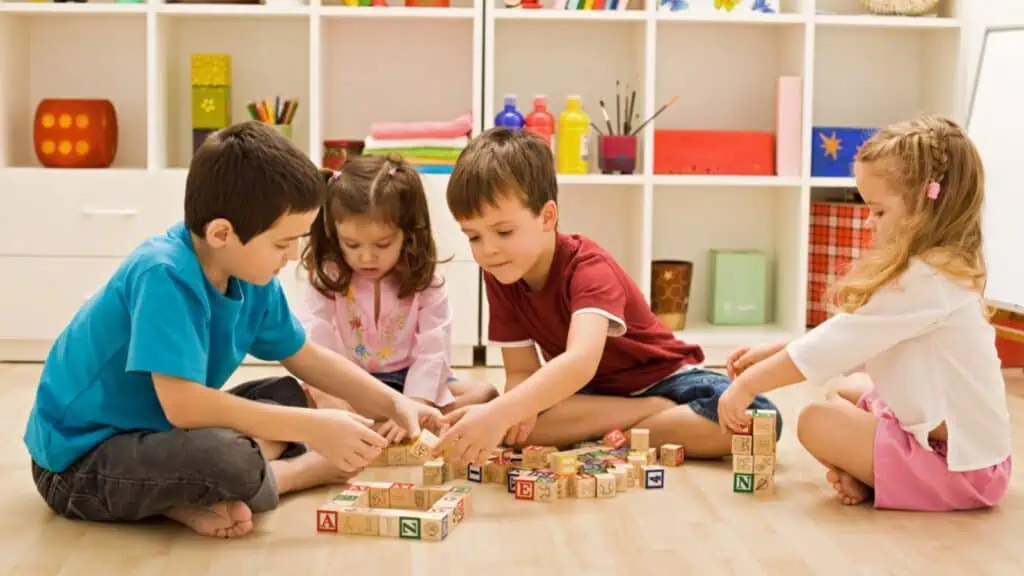
Kids are meant to be carefree, goofy, wild, loud, and rebellious. It’s how they learn about the world and themselves. However, with busy schedules, some parents (and other adults) quickly shut down any “inappropriate” behavior in public. In doing so, they’re stifling their natural instincts and creativity.
It’s important to give kids the space to be themselves, alone and with other kids, without constant correction or judgment.
6. The Freedom to Make Mistakes and Learn from Them
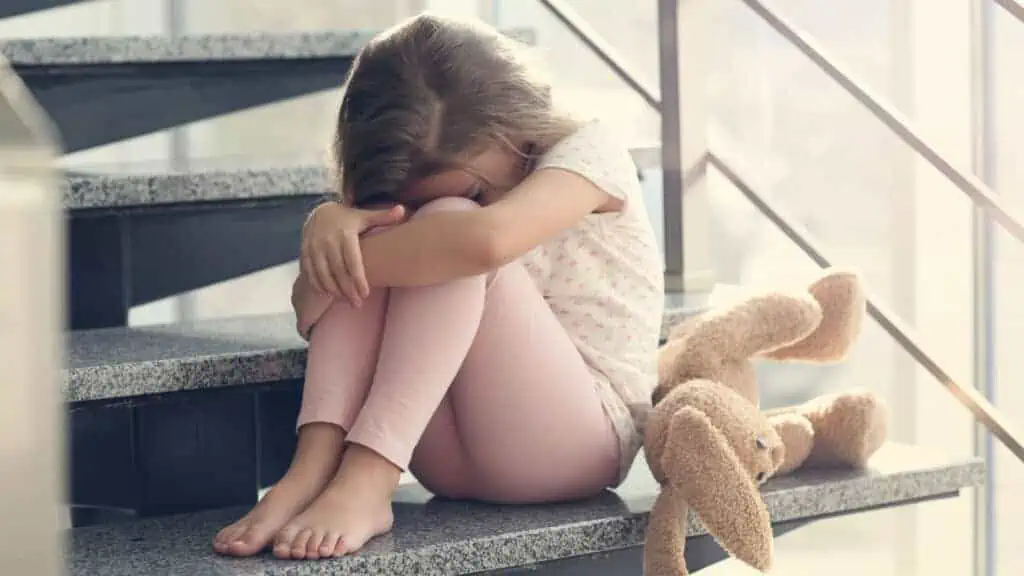
These days, everything seems to be competitive and judged with a fine-toothed comb. From grades to extracurricular activities, kids are constantly under pressure to be perfect and successful. As a result, they’re not given the freedom to make mistakes and learn from them.
But making mistakes is essential to growing up and learning about the world. Adults should allow children the space to fail and learn from their mistakes without fear of judgment or punishment.
7. Living in a Close-Knit Neighborhood
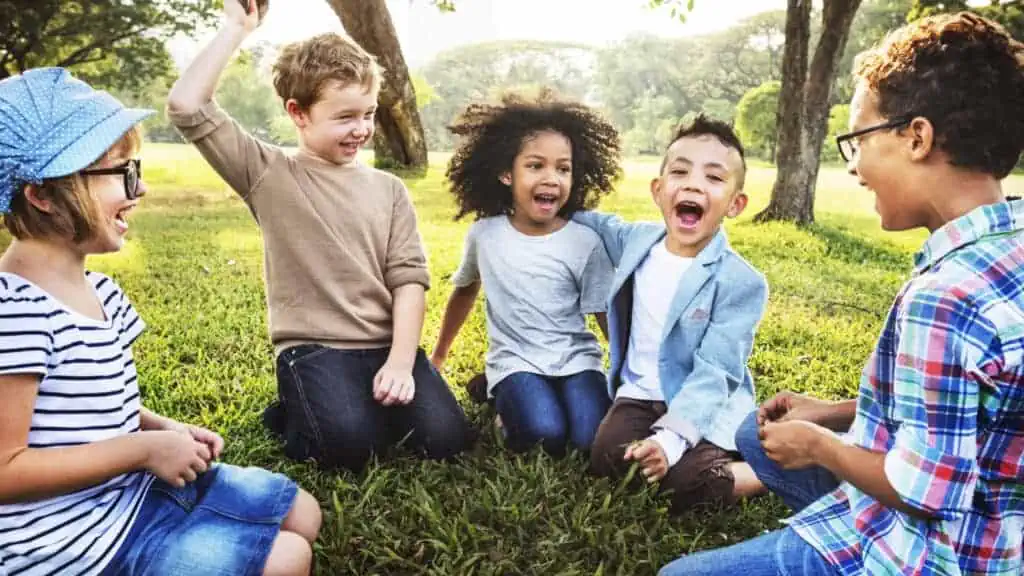
Kids have lost their freedom to roam and explore their neighborhoods due to safety concerns. In the past, kids used to have a close-knit community in their neighborhood where they could play with friends and neighbors, go door-to-door selling lemonade, or just hang out. But nowadays, many kids don’t even know their neighbors’ names.
It’s important for children to have a sense of community, whether it’s through their neighborhood or other local activities, to build relationships and learn important social skills.
8. Getting Outside to Explore
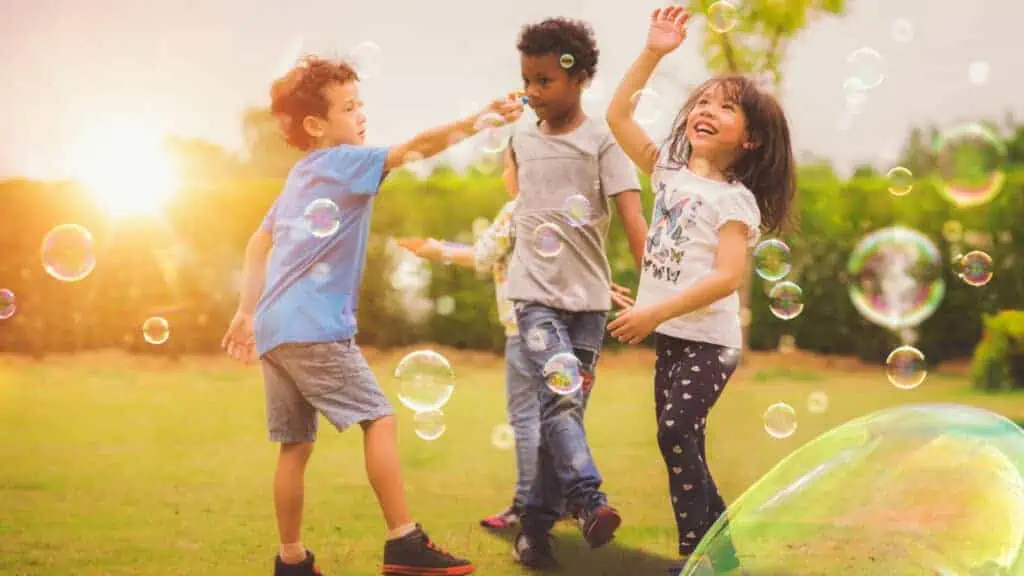
Kids spend much more time indoors on their electronics than outside exploring. Sadly, some parents are afraid to let their kids play outside. Some nosy neighbors will even report parents for letting their kids play unattended in the yard or on the sidewalk.
But being outside and exploring nature is essential for a child’s development, from physical health to imagination and curiosity. Parents should encourage their kids to spend time outside (and join them), whether it’s through organized outdoor activities or simply playing in the backyard.
9. Unstructured Imaginative Play
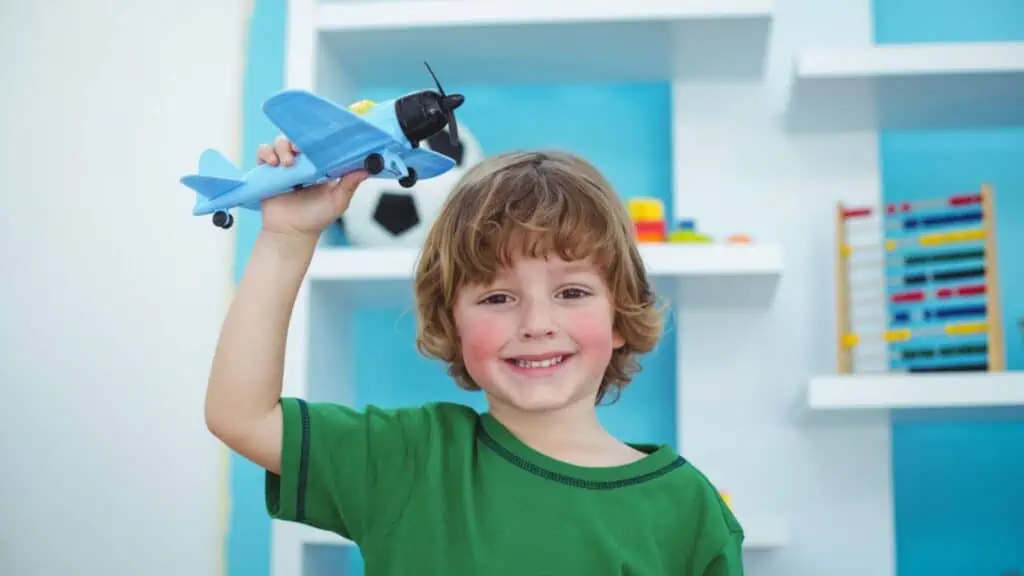
Unstructured playtime is arguably one of the most important things for preserving childhood innocence. It allows kids to use their imaginations, create their own stories and games, and have fun without rules or expectations.
In today’s society, playtime is often structured with organized activities or playdates where everything is planned out. While these can be beneficial, it’s important to also give children the space and time to unplug and let their imaginations run wild.
10. Flashlight Tag After Dark
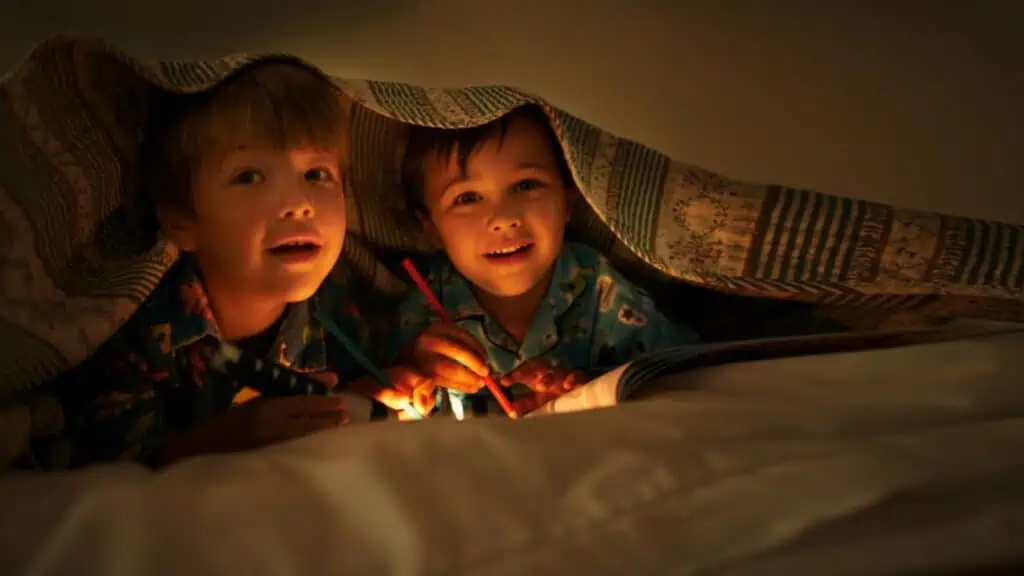
Some adults have nostalgic memories of playing outside with flashlights after dark, whether it was a tag or simply exploring the backyard. This is an activity that many kids today are missing out on due to safety concerns and strict bedtimes.
But playing outside after dark adds a new excitement and adventure for kids. It also allows them to use their imagination in a different way as they navigate through the darkness with just a flashlight.
11. Being Bored
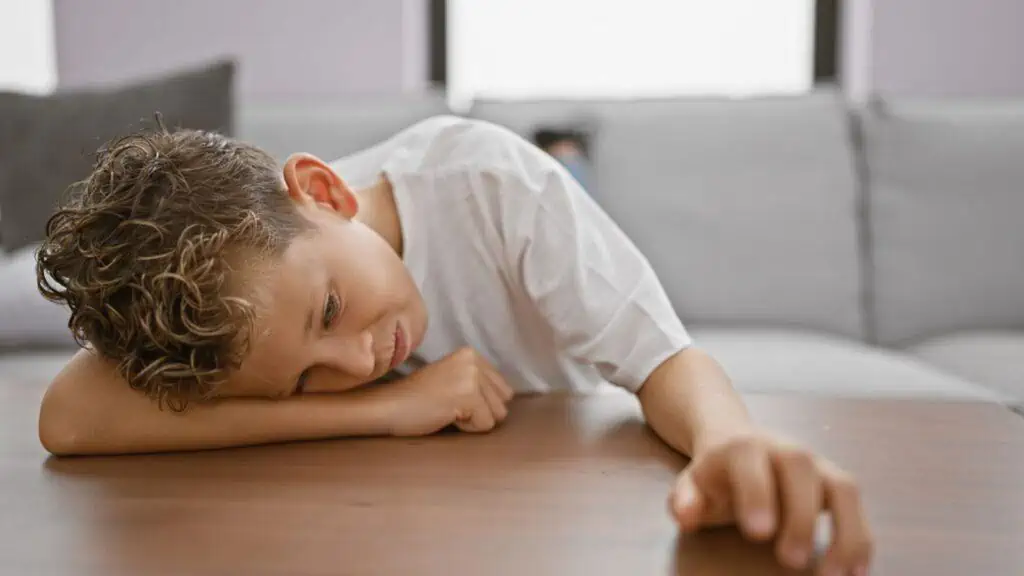
Many of today’s kids don’t get the chance to be bored. Instead, they turn to screens for constant entertainment and stimulation. However, boredom can lead to independent thinking and problem-solving skills.
Allowing kids the space and time to be bored can help foster their creativity and resourcefulness. It’s important for adults to resist the urge to constantly entertain children with electronics or activities and let them figure out how to occupy themselves on their own.
12. Use of Problem-Solving Skills

Parents might feel they need to give detailed, explicit instructions to their children. That way, they stay on schedule and do something as perfectly as possible. However, they should allow children to figure things out for themselves and use their problem-solving skills. This can be as simple as letting them make mistakes while doing chores or finding a solution to a problem independently.
By allowing children to work through challenges and devise solutions, adults are teaching them valuable skills that will benefit them in the long run. Some adults are amazed that some kids graduating from high school don’t know how to do anything without specific instructions.
13. Access to Nature and Real Food
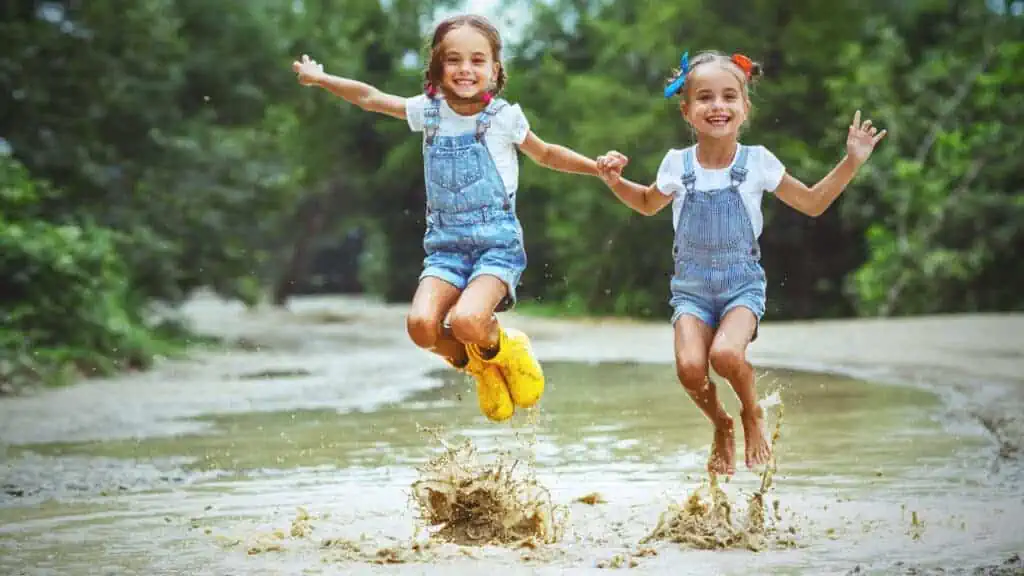
Today’s kids have lost touch with nature. They are more likely to spend their time indoors, in front of screens, or participating in organized activities. As a result, they may not realize the importance of taking care of the environment and eating real, unprocessed food.
Children should have access to nature and be educated about the importance of caring for our planet. They should also have opportunities to learn how to grow and prepare their own food, rather than relying on processed and fast foods. This will not only promote a healthier lifestyle but also foster an appreciation for the natural world.
14. Holding Kids Accountable
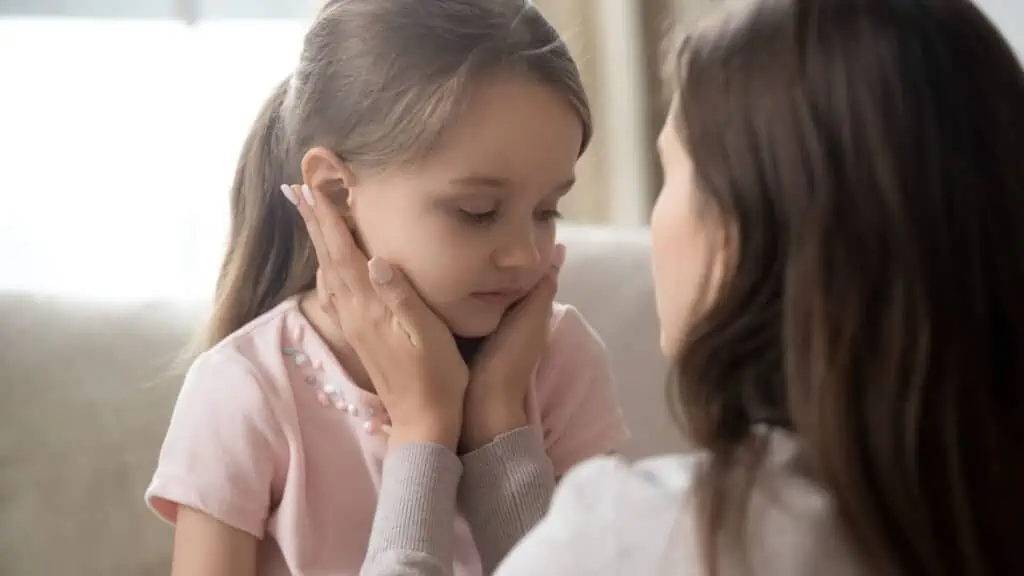
There is a large lack of accountability, particularly in schools, in today’s society. Kids are often coddled and given second chances instead of being held accountable for their actions. In some states, teachers are now even allowed to reprimand students for misbehavior.
But holding kids accountable teaches them important lessons about responsibility, consequences, and respect. They learn that their actions have an impact on themselves and others, leading to better decision-making in the future.
15. Endless Optimism

It seems kids are inundated with constant doom and gloom these days. From news headlines to social media, it’s easy for them to get caught up in the negativity and lose their sense of optimism.
However, adults can encourage children to maintain optimism by being positive role models themselves. Learning to focus on what they can control is also crucial for maintaining an optimistic mindset. By instilling a sense of hope and positivity in children, adults can help them navigate the challenges and uncertainties of life with resilience.
20 Strong Words Parents Should Never Say to Their Kids
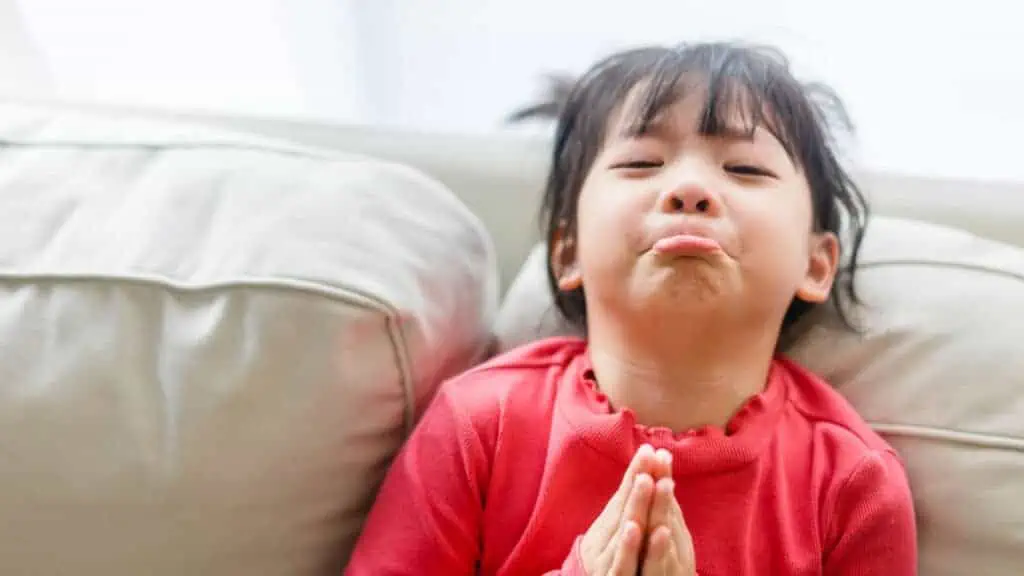
Countless adults sitting in a therapist’s office today are grappling with the lasting impact of words spoken by their parents during childhood. Regardless of how you perceive yourself, in your child’s eyes, you are nothing short of the most remarkable thing to happen to them since “skip intro.” This underscores the critical importance of being mindful of what you say to your children, as your words become the small but influential voice in their developing minds.
20 Strong Words Parents Should Never Say to Their Kids
30 Ridiculous Baby Names That Will Be Mispronounced for the Rest of a Child’s Life

Choosing a name for a newborn is a weighty responsibility for new parents, as it wields a profound influence on a child’s identity. Yet, what unfolds when the selected name emerges as undeniably cringe-worthy? Some parents go to great lengths to deviate from tradition, occasionally venturing into the domain of bewilderment, which leaves others puzzled and scratching their heads.
30 Ridiculous Baby Names That Will Be Mispronounced for the Rest of a Child’s Life

